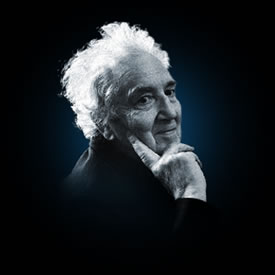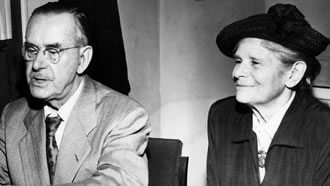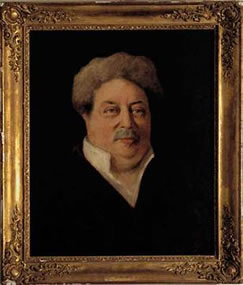De Engelse dichter en schrijver Robert Graves werd geboren in Londen (Wimbledon) op 24 juli 1895. Zie ook alle tags voor Robert Graves op dit blog.
The Naked And The Nude
For me, the naked and the nude
(By lexicographers construed
As synonyms that should express
The same deficiency of dress
Or shelter) stand as wide apart
As love from lies, or truth from art.
Lovers without reproach will gaze
On bodies naked and ablaze;
The Hippocratic eye will see
In nakedness, anatomy;
And naked shines the Goddess when
She mounts her lion among men.
The nude are bold, the nude are sly
To hold each treasonable eye.
While draping by a showman’s trick
Their dishabille in rhetoric,
They grin a mock-religious grin
Of scorn at those of naked skin.
The naked, therefore, who compete
Against the nude may know defeat;
Yet when they both together tread
The briary pastures of the dead,
By Gorgons with long whips pursued,
How naked go the sometime nude!
Symptoms of Love
Love is universal migraine,
A bright stain on the vision
Blotting out reason.
Symptoms of true love
Are leanness, jealousy,
Laggard dawns;
Are omens and nightmares –
Listening for a knock,
Waiting for a sign:
For a touch of her fingers
In a darkened room,
For a searching look.
Take courage, lover!
Could you endure such pain
At any hand but hers?
Smoke-Rings
BOY
Most venerable and learned sir,
Tall and true Philosopher,
These rings of smoke you blow all day
With such deep thought, what sense have they?
PHILOSOPHER
Small friend, with prayer and meditation
I make an image of Creation.
And if your mind is working nimble
Straightway you’ll recognize a symbol
Of the endless and eternal ring
Of God, who girdles everything—
God, who in His own form and plan
Moulds the fugitive life of man.
These vaporous toys you watch me make,
That shoot ahead, pause, turn and break—
Some glide far out like sailing ships,
Some weak ones fail me at my lips.
He who ringed His awe in smoke,
When He led forth His captive folk,
In like manner, East, West, North, and South,
Blows us ring-wise from His mouth.

Lees verder “Robert Graves, Johan Andreas der Mouw, Banana Yoshimoto, Rosemarie Schuder”


